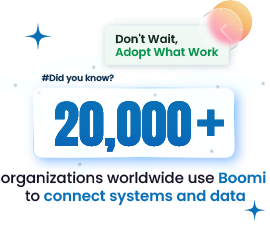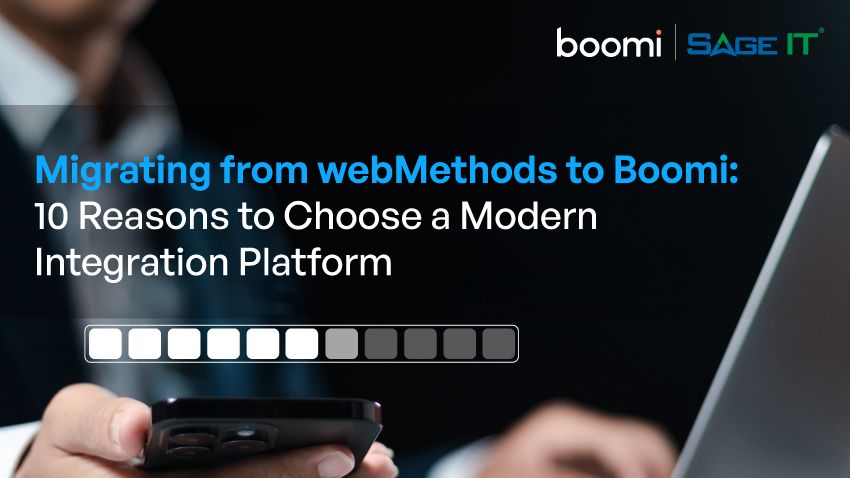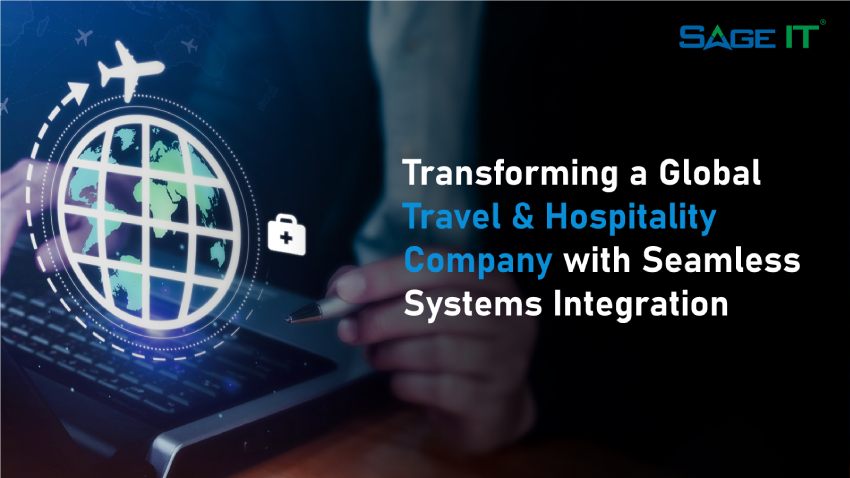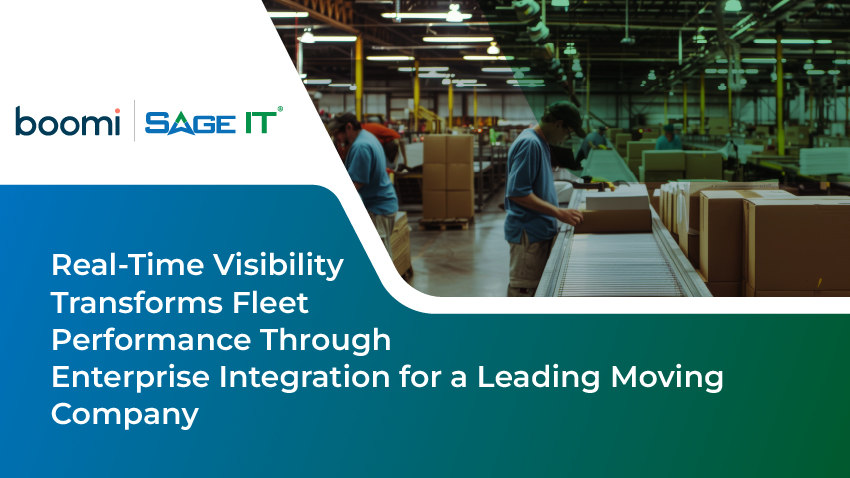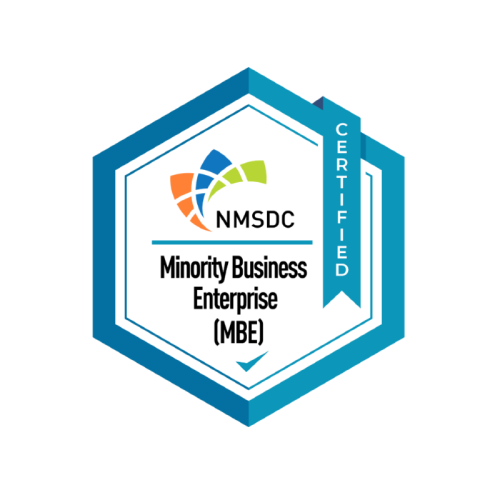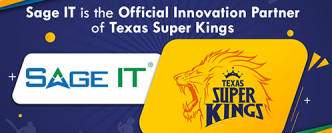39% of developer time goes into building custom integrations, while 65% of organizations prioritize automation tools for non-technical users. Businesses want faster, smarter ways to connect systems without overloading IT teams. The right integration platform can bridge this gap, but which one best fits your needs?
Boomi, MuleSoft, and Apigee each take a different approach. Boomi focuses on low-code automation, MuleSoft provides enterprise-grade API control, and Apigee specializes in API security and traffic management.
If you’re evaluating these platforms, this comparison will break down their capabilities, scalability, API management, and real-world use cases, helping you determine which one best aligns with your integration goals and IT strategy.
Integration Platforms (Boomi, Mulesoft and Apigee) Overview
What is Boomi?
Boomi is a cloud-native integration platform (iPaaS) that connects applications, automates workflows, manages APIs, and ensures data integrity across cloud and on-premises environments. It offers low-code tools, AI-driven automation, and pre-built connectors to streamline integration and accelerate digital transformation.
What is MuleSoft?
MuleSoft is an integration platform used to connect applications, data, and devices across cloud and on-premises environments. It supports API management, workflow automation, and secure data exchange for better connectivity and business operations.
What is Apigee?
Apigee is Google Cloud’s API management platform, designed to build, secure, and monitor APIs for businesses operating at any scale. It supports API proxies, analytics, security enforcement, and traffic management, making it ideal for API-first architectures and enterprises handling high API traffic.
Boomi vs MuleSoft vs Apigee – Comprehensive Comparison
1. Core Integration Capabilities
| Feature | Boomi | MuleSoft | Apigee |
|---|---|---|---|
| API Management | Unified API governance within iPaaS. | Enterprise-grade API lifecycle control. | Best-in-class API security and monetization. |
| Data Integration | Pre-built connectors for rapid deployment. | Deep transformation with DataWeave. | API-based data orchestration. |
| B2B/EDI Integration | Managed EDI transactions and trading partners. | B2B/EDI via Partner Manager, AS2 support. | Limited, API-first approach. |
| Application Integration | Low-code UI with reusable integration packs. | API-led approach with robust SDK. | API-first, optimized for web services. |
| System Integration | Hybrid cloud, edge, and on-premise connectivity. | Strong ERP/CRM integration, hybrid support. | API gateway-driven system interoperability. |
2. API Management Features
| Feature | Boomi | MuleSoft | Apigee |
|---|---|---|---|
| API Design | Drag-and-drop API creation. | OpenAPI, RAML, and OAS support. | Industry-standard API design best practices. |
| Access Control | Role-based security, OAuth, JWT policies. | Granular policies, VPC support. | Enterprise-grade API security enforcement. |
| Analytics | Standard API metrics, monitoring. | Deep insights via Anypoint Monitoring. | Advanced AI-driven API analytics. |
| Traffic Control | LLoad balancing, rate limiting. | Custom policies for rate limiting. | Traffic shaping, threat detection. |
3. Platform-Specific Features
| Feature | Boomi | MuleSoft | Apigee |
|---|---|---|---|
| Pre-built Connectors | Extensive library for SaaS and legacy apps. | Rich ecosystem, Anypoint Exchange. | API-based integrations, limited native connectors. |
| ESB Capabilities | Not a primary focus. | Embedded ESB, supports SOA & microservices. | Not applicable. |
| Hybrid Cloud Support | SaaS-first, on-premise agents available. | Full hybrid deployment, edge support. | Cloud-first, supports on-prem proxy. |
| AI & Automation | AI-assisted mapping, workflow automation. | AI-driven RPA, process automation. | AI-powered API analytics, security. |
4. Scalability & Performance
| Feature | Boomi | MuleSoft | Apigee |
|---|---|---|---|
| Cloud Support | Fully cloud-native, multi-tenant SaaS. | Cloud and on-premises hybrid support. | Cloud-optimized, Google Cloud-backed. |
| Deployment Speed | Rapid, low-code integrations. | Medium setup time, coding required. | API-driven, fast API deployments. |
| Enterprise Performance | Scales for mid-market and enterprises. | Best for large-scale enterprise IT. | API-optimized for high traffic loads. |
5. Security & Compliance
| Feature | Boomi | MuleSoft | Apigee |
|---|---|---|---|
| Authentication | OAuth, JWT, SAML-based security. | Granular security policies, OAuth2. | Advanced API authentication, tokens. |
| Compliance | GDPR, HIPAA-ready, SOC 2 certified. | Strong compliance, enterprise controls. | Full compliance, Google-grade security. |
6. Ease of Use & Development
| Feature | Boomi | MuleSoft | Apigee |
|---|---|---|---|
| User-Friendly | Low-code/no-code, rapid prototyping. | Low-code/no-code, rapid prototyping. | Developer-first, API-driven. |
| No-Code Support | Full low-code/no-code support. | Some low-code, requires coding. | No no-code support. |
7. Monitoring & Observability
| Feature | Boomi | MuleSoft | Apigee |
|---|---|---|---|
| API Monitoring | Standard logs, health checks. | Anypoint Monitoring with dashboards. | AI-powered observability, deep API insights. |
8. Ecosystem & Community
| Feature | Boomi | MuleSoft | Apigee |
|---|---|---|---|
| Marketplace & Add-ons | Boomi Exchange, pre-built accelerators. | Anypoint Exchange, partner solutions. | Google Cloud integrations, API monetization. |
| Community Support | Large SMB and enterprise adoption. | Developer-driven, strong enterprise base. | Google-backed API developer ecosystem. |
9. Pricing & Licensing
| Feature | Boomi | MuleSoft | Apigee |
|---|---|---|---|
| Pricing Model | Subscription-based, usage-based options. | Enterprise licensing, high pricing tiers. | Pay-as-you-go, usage-based pricing. |
10. Market Position & Use Cases
| Feature | Boomi | MuleSoft | Apigee |
|---|---|---|---|
| Best For | SMBs to enterprises, hybrid integrations. | Enterprise-grade integration, complex IT needs. | API-driven businesses, digital platforms. |
| Industry Fit | IT, finance, healthcare, manufacturing. | Complex IT, ERP, CRM-heavy industries. | E-commerce, telecom, SaaS-based businesses. |
Detailed Features Comparison for Boomi, MuleSoft and Apigee
| Feature | Boomi | MuleSoft | Apigee |
|---|---|---|---|
| API Management | Boomi offers a Federated API Management system through its API Control Plane, enabling centralized governance and enhanced visibility across multiple gateways. | MuleSoft provides a comprehensive API lifecycle management with API-led connectivity, utilizing tools like Anypoint API Manager for design, deployment, and governance. | Apigee specializes in advanced API gateway functionalities, including API traffic monitoring, threat protection, and API monetization, catering to enterprise-grade requirements. |
| Data Integration | Boomi features pre-built connectors, a visual data mapping interface, and a Master Data Hub to ensure data synchronization across various systems. | MuleSoft utilizes DataWeave for intricate data transformations and supports both batch processing and real-time data integration. | Apigee focuses primarily on API-level data exchange, with limited native data integration features compared to Boomi and MuleSoft. |
| B2B/EDI Integration | Boomi supports multiple EDI standards, such as X12 and EDIFACT, and offers Trading Partner tools for detailed configuration and EDI mapping. | MuleSoft provides B2B/EDI integration through its Partner Manager, supporting protocols like AS2 and facilitating seamless partner onboarding. | Apigee does not primarily focus on B2B/EDI integration, emphasizing API management instead. |
| Application Integration | Boomi provides a low-code integration builder with AtomSphere connectors and Integration Packs for common patterns, simplifying the integration process. | MuleSoft offers Anypoint Connectors and Flow Designer for visual integrations, promoting an API-led integration approach. | Apigee focuses on API-based integrations, requiring more manual setup due to limited built-in connectors. |
| System Integration | Boomi enables both cloud-to-cloud and cloud-to-ground integration, featuring robust error handling and system orchestration capabilities. | MuleSoft supports deep integration with ERP/CRM systems, offering a hybrid architecture and real-time, event-driven integration. | Apigee primarily supports system connectivity via APIs, lacking traditional system integration tools. |
| Ease of Use | Boomi offers a low-code/no-code platform with an intuitive interface, making it accessible for users with varying technical expertise. | MuleSoft presents a moderate learning curve, requiring familiarity with Anypoint Studio and DataWeave for effective use. | Apigee’s platform is robust but necessitates a higher level of API expertise, making it more suitable for experienced developers. |
| API Security & Compliance | Boomi implements basic API security measures, including OAuth, JWT, and an API Gateway for secure API exposure. | MuleSoft offers advanced security features, such as policy enforcement and Virtual Private Cloud (VPC) support, ensuring stringent compliance. | Apigee provides robust security capabilities, including rate limiting, bot detection, and comprehensive threat protection. |
| Scalability & Performance | Boomi utilizes a distributed Atom runtime for efficient performance and scalability across environments. | MuleSoft supports clustered enterprise deployments, offering high scalability for large-scale integrations. | Apigee’s API gateway is optimized for handling high API traffic, ensuring reliable performance. |
| Monitoring & Analytics | Boomi provides basic API monitoring with real-time dashboards and health checks. | MuleSoft’s Anypoint Monitoring delivers deep insights into API performance and usage metrics. | Apigee offers advanced analytics, including traffic analysis and AI-based monitoring for proactive issue resolution. |
| Developer Experience | Boomi’s simple UI and built-in automation facilitate a smooth development process for users. | MuleSoft requires expertise in DataWeave and Anypoint Studio, offering a comprehensive environment for skilled developers. | Apigee provides deep customization options, catering to developers seeking extensive control over API configurations. |
| Automation & AI | Boomi offers workflow automation and is integrating AI to enhance integration processes. | MuleSoft supports Robotic Process Automation (RPA) and AI-driven automation to streamline tasks. | Apigee incorporates AI for API analytics and threat detection, enhancing security and performance. |
| Deployment Model | Boomi is a cloud-native SaaS platform with hybrid deployment options to suit various environments. | MuleSoft offers a hybrid deployment model, supporting on-premise, cloud, and edge computing environments. | Apigee is primarily a cloud-based SaaS solution, with support for on-premise proxies as needed. |
| Ecosystem & Marketplace | Boomi benefits from a broad ecosystem, with a strong presence among SMBs and an active user community. | MuleSoft integrates with the Salesforce ecosystem, enjoying strong adoption among enterprises. | Apigee is part of the Google Cloud ecosystem, offering a robust API marketplace for developers. |
Factors to Compare Before Choosing Between Boomi, Mulesoft and Apigee
Pricing and Licensing
Boomi:
MuleSoft
Apigee
Organization Types Supported:
All three platforms—Boomi, MuleSoft, and Apigee—are designed to support a wide range of organization types, including:
Platforms Supported
Boomi
MuleSoft
Apigee
Modes of Support:
API Support
Boomi vs MuleSoft vs Apigee – User Reviews
| Feature | Boomi (4.7/5 – Gartner, 4.4/5 – G2) | MuleSoft (4.6/5 – Gartner, 4.5/5 – G2) | Apigee (4.5/5 – Gartner, 4.3/5 – G2) |
|---|---|---|---|
| Primary Strength | Low-code iPaaS for integrations | Enterprise API & integration platform | Full-lifecycle API management |
| Ease of Use | User-friendly, low-code interface
User Opinion: “Boomi allows for building data processes without needing to code.” User Opinion: “Low-code system with great community support.” |
Steep learning curve for non-technical users
User Opinion: “A steep learning curve for first-time users.” |
Feature-rich, but UI needs an update
User Opinion: “Great functionality, but the UI could use a refresh—it feels clunky.” |
| Integration Capabilities | Extensive pre-built connectors (Salesforce, SAP, etc.)
User Opinion: “The SAP connector is a game-changer.” User Opinion: “Supports connecting to a wide variety of applications via API.” |
Strong API governance & reusable assets
User Opinion: “Reusable assets and robust connectors simplify integration.” |
Deep Google Cloud integration
User Opinion: “If you already use Google’s ecosystem, Apigee integrates smoothly.” |
| Scalability | Scales well for hybrid environments
User Opinion: “Boomi is a stable and scalable platform for application integration.” User Opinion: “Brings agility to business operations and reduces time to market.” |
Enterprise-grade scalability for complex systems
User Opinion: “Supports integration at scale with strong API governance.” |
Handles high API traffic with no downtime
User Opinion: “No performance issues, even with massive API traffic.” |
| Performance | Stable, efficient in managing workflows | Optimized for large-scale API-based integrations | Reliable performance with massive API loads |
| API Management | Basic API handling via connectors | Advanced API management with DataWeave
User Opinion: “DataWeave functions make API management smooth.” User Opinion: “The API manager supports detailed policies and access controls.” |
Comprehensive API security & governance
User Opinion: “Apigee strengthens API security and governance—it’s a must-have for API-driven businesses.” |
| Security & Compliance | Secure integration processes | Strong security policies for APIs | Enterprise-grade API security and compliance
User Opinion: “Apigee gives us complete control over API security without additional configurations.” |
| Support & Documentation | Comprehensive training resources, active community
User Opinion: “Detailed resources on the Boomi portal.” User Opinion: “The support team has been exceptional.” |
Extensive learning modules, but support can be slow
User Opinion: “Extensive resources, including demos and online modules.” |
Good documentation, but some language support is limited
User Opinion: “I’d love to see stronger support for Python.” |
| Community & Learning | Boomi portal with detailed learning resources | Active community & online training modules | Engaged Google Cloud developer community |
| Setup & Deployment | Fast deployment with minimal technical effort | Complex setup, requires expertise | Smooth cloud-native setup, but on-prem deployment is complex
User Opinion: “Setting it up on-prem wasn’t as smooth as we expected.” |
| Pricing & Affordability | Pay-as-you-go model, may be costly for small teams
User Opinion: “The pay-as-you-go model is flexible but may concern smaller businesses.” |
Volume-based pricing, expensive at scale
User Opinion: “Costs increase significantly with usage.” |
Competitive pricing but may not suit all businesses |
| Best For | Companies seeking a low-code integration platform | Enterprises requiring large-scale API & integration | Organizations prioritizing API-first development |
Boomi vs. MuleSoft vs. Apigee: Which One Fits Your Business Best?
Every business has different integration needs, and the right platform depends on how you operate.
MuleSoft works well for enterprises with strong engineering teams that need deep API customization. If you have the resources to manage complex configurations and custom integrations, it’s a powerful tool. But high costs and long deployment cycles can slow down businesses that need faster execution.
Apigee is best for businesses focused on API management and monetization. It works well for companies with public APIs, developer portals, and external marketplaces, but it doesn’t provide workflow automation or system-wide integrations.
Boomi offers seamless application connectivity, workflow automation, and full API lifecycle management—all within a low-code, scalable platform. It’s built for businesses looking to integrate cloud, on-prem, and hybrid environments without heavy technical complexity.
Do you need expert Boomi implementation? Our Boomi implementation service (Certified Boomi Partners) takes care of setup, optimization, and ongoing support—so your integrations work without the hassle.
Let’s talk about getting your integrations up and running. Connect with us today!

